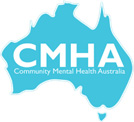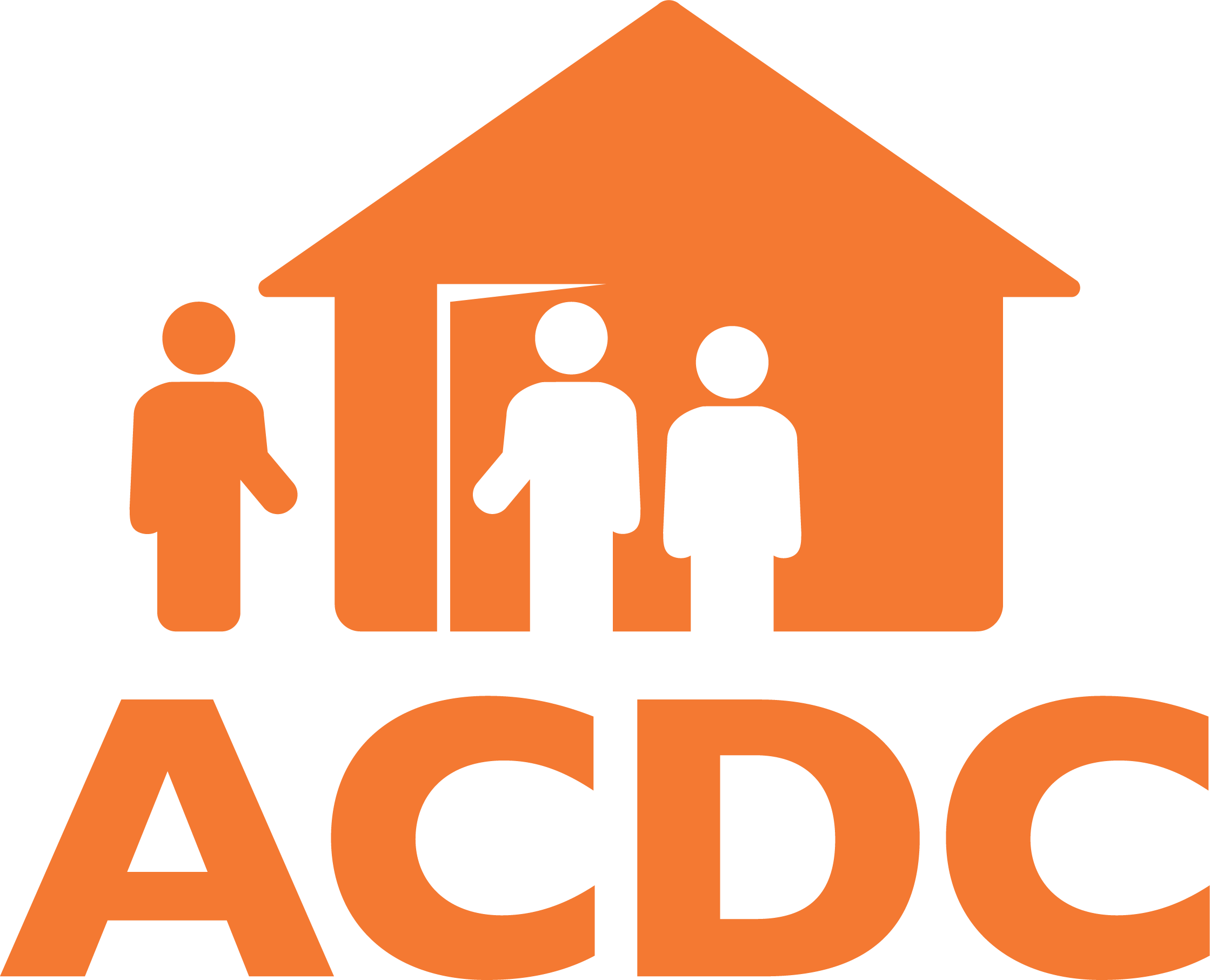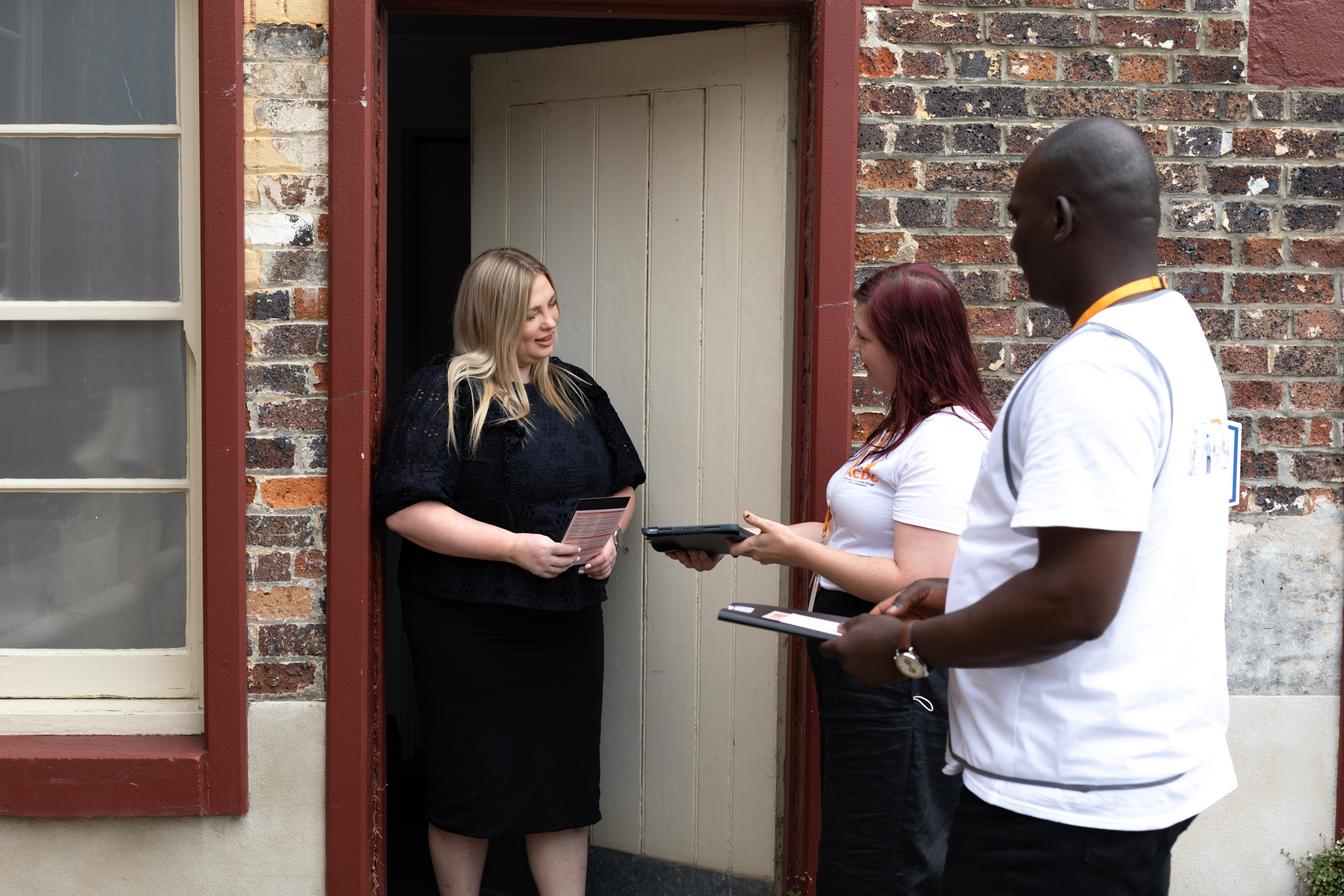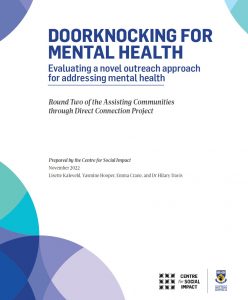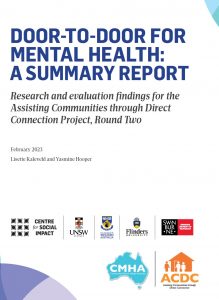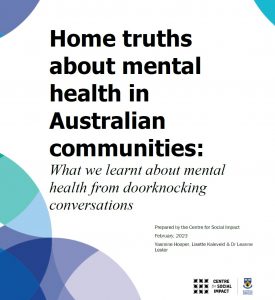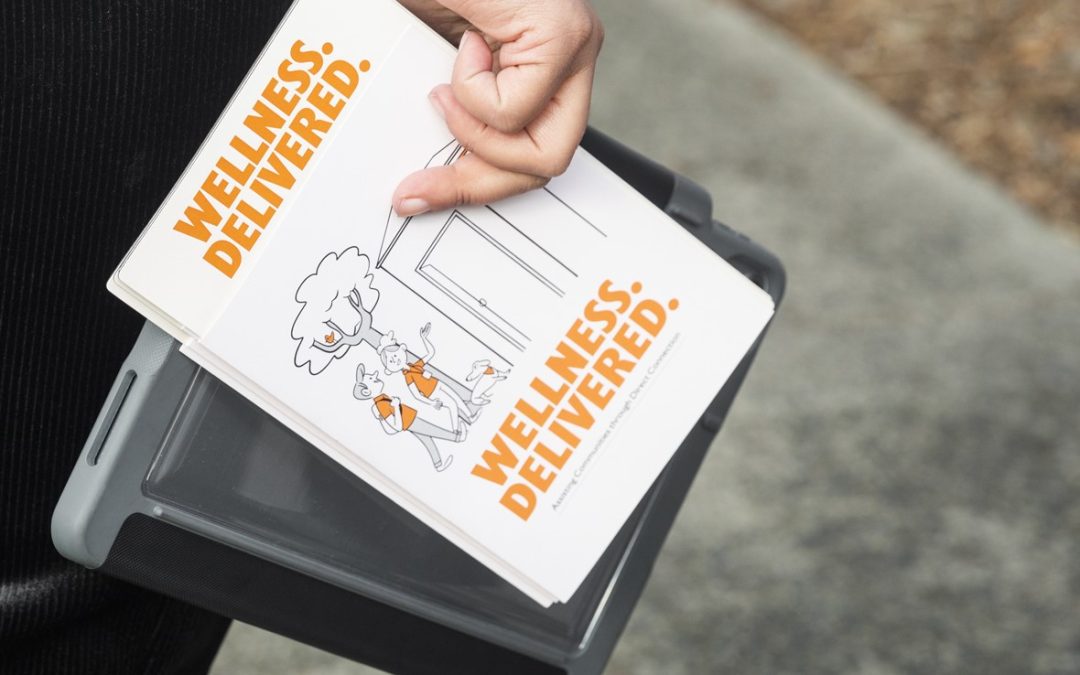Australian-first study opens the door to our mental health crisis. A joint study with Centre for Social Impact (CSI)
- More than 37,000 homes door-knocked across the country to talk about the mental health of households
- Believed to be the only mental health study of its kind globally
- This major investigation revealed huge numbers of Australians are in distress, with many struggling to access support
The largest ever doorknock delving into the mental health of households across the country has revealed the true extent of our national crisis, with nearly half of people reporting being in distress and more than one-third saying they need more support – but many encountering barriers to receiving help.
The ACDC (Assisting Communities through Direct Connection) project, run by Community Mental Health Australia (CMHA) and funded by the Commonwealth Department of Social Services, knocked on about 37,500 doors across the country to kickstart conversations about mental health and encourage people to access support services.
Of the doors answered, 46% of householders had a conversation with an ACDC People Connector and 68.9% completed a follow-up survey, giving participants the chance to anonymously share their experiences with mental health and accessing support.
Evaluation of the project by the Centre for Social Impact at the University of Western Australia shows that 49.4% of respondents reported being in moderate to very high distress, and 36.7% of respondents said they needed more support.
Speaking with a People Connector prompted further action for the majority of households. Six in ten felt encouraged to speak to a loved one about their own mental health and wellbeing. More than half of people took further action or plan to seek professional help, with 31.8% contacting a professional, a service or a community organisation to ask about support for their mental health or wellbeing and a further 23.7% planning to do this.
Alarmingly, nearly half (43.2%) of respondents who had wanted to seek help in the last year were unable to get the support they needed. About a quarter (25.6%) could not afford the cost of the service/support, 23.7% did not know where to go to get help, and 22.3% said they were too afraid, embarrassed or ashamed to ask for help. Social determinant factors such as housing, employment challenges, and financial stress, also correlated with higher levels of distress and lower wellbeing scores.
Lisette Kaleveld, Research Officer at the Centre for Social Impact, University of Western Australia, said the evaluation showed Australians want to discuss mental health and seek support, but too often face barriers in accessing professional assistance.
“This project shows the need for greater access to mental health support and services,” she said. “People welcomed the chance to open up and discuss their support needs with a stranger knocking at their front door, often expressing their struggles while also not being aware of all the support options in their communities. Some had tried to reach out before but were stuck in various stages of help-seeking, which can be really complicated for some services.
“Prohibitive costs, shame, the preference to self-manage and not knowing what supports are available were the most common barriers to people accessing support. While the scale of these barriers varies between communities, it is clearly an uphill battle for too many people to access the support they need, especially if they are already in distress or juggling various crises such as financial or housing stress at the same time. We were only able to uncover this by going door to door, literally standing on the front step with lots of time to chat and listen, and to let people know that help is out there.”
Community Mental Health Australia CEO Bill Gye said the research showed a clear connection between the mental health crisis and underlying issues which were too often considered separately.
“This was a colossal project, with more than 52 People Connectors visiting over 37,500 households and speaking to more than 6,600 residents,” he said.
“The evaluation has demonstrated how important social determinants are to addressing poor mental wellbeing, with people facing significant challenges usually juggling multiple concerns and reporting higher distress and lower wellbeing.
“Most people think of greater health expenditure as the policy response to the mental health crisis, but we need to be thinking more broadly about the underlying causes which drive mental distress like social inequality, poverty, lack of affordable housing and poor lifestyle. We must meet this challenge with holistic multidisciplinary support rather than trying to silo mental and emotional wellbeing from these significant social equity needs.
“The way we design and deliver mental health support is as important as overcoming access barriers. Expecting people to seek different services and supports, all for different needs or issues, only creates more barriers to accessing appropriate, timely help.”
The ACDC project visited communities across every state and territory, including Cabramatta, Toowoomba, Ipswich, Port Adelaide, Burnie, Fitzroy and Bendigo. People Connectors offered information booklets and fridge magnets about relevant mental health support services available to them, often significant community language to ensure accessibility and relevance to individuals. People Connectors could also assist when a householder asked for more information or for support to be linked with a service.
